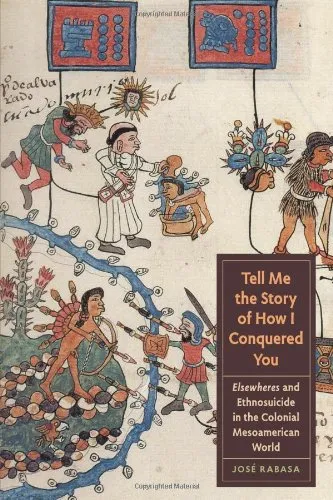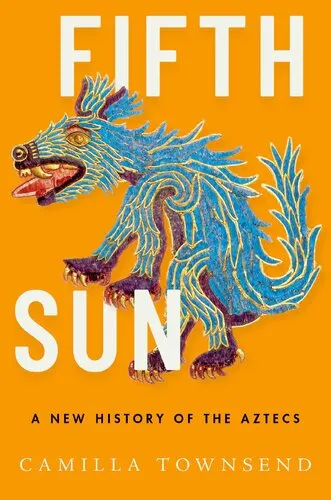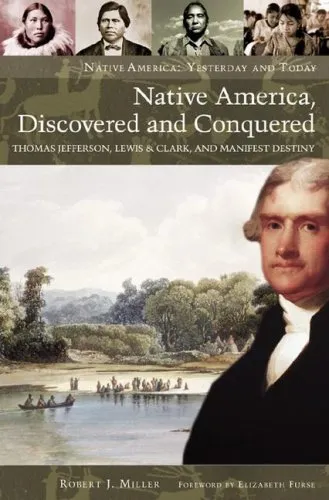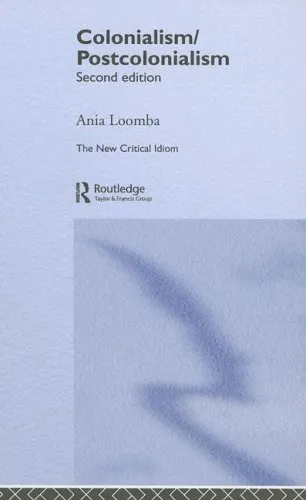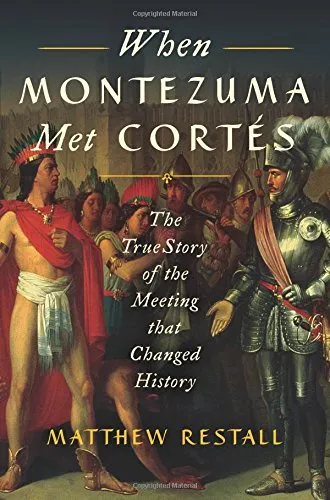Tell Me the Story of How I Conquered You: Elsewheres and Ethnosuicide in the Colonial Mesoamerican World (Joe R. and Teresa Lozano Long Series in Latin American and Latino Art and Culture)
4.7
Reviews from our users

You Can Ask your questions from this book's AI after Login
Each download or ask from book AI costs 2 points. To earn more free points, please visit the Points Guide Page and complete some valuable actions.Related Refrences:
Introduction
Welcome to a journey through the complex layers of history and colonial narratives illustrated in the book 'Tell Me the Story of How I Conquered You: Elsewheres and Ethnosuicide in the Colonial Mesoamerican World'. Authored by José Rabasa, this work meticulously dissects and reconstructs the Mesoamerican colonial world to reveal how the discourse of conquest shapes our understanding of history and identity.
Detailed Summary of the Book
José Rabasa delves into the narratives of conquest, employing the term "ethnosuicide" to address the profound cultural impacts inflicted upon Mesoamerican societies. With an analytical lens, Rabasa critiques how colonial texts have been traditionally interpreted, challenging readers to reconsider whose stories are privileged in the historical discourse. Through Rabasa's examination, the notion of how these societies' cultural reproduction was systematically disrupted becomes evident, offering a rich exploration of both written and unwritten histories.
By revisiting Spanish chronicles and indigenous accounts, Rabasa identifies the fallacies and gaps within these narratives, offering perspectives from the "Elsewheres"—those more marginalized voices of conquered peoples. His work explores how colonial encounters induced a metaphorical and literal conquest of Mesoamerican consciousness, resulting in what he describes as "ethnosuicide," or the intentional obliteration of cultural identity and heritage.
Key Takeaways
- A critical analysis of colonial texts reveals the inherent biases of conquerors.
- Understanding the concept of elsewheres highlights marginalized perspectives and histories.
- Ethnosuicide underscores the intentional erasure and transformation of indigenous cultures.
- Reconstructing historical narratives allows for a more nuanced understanding of identity and cultural survival.
Famous Quotes from the Book
“To conquer a people is to demand a new voice from them, yet what voice remains when that demand seeks to silence the myriad others?”
“In the shadows of colonization dwell the stories of resistance, unchronicled yet resilient, echoing through time.”
Why This Book Matters
This book is crucial because it revises the canonical narratives of history that often overlook the intricacies of cultural interplay between colonizers and the colonized. Rabasa's work empowers current and future generations to re-evaluate historical events through a lens that prioritizes depth and multiplicity of perspectives. It serves as a catalyst for dialogue about identity, power, and representation, urging us to reconsider how history is written and remembered.
The book is also an essential contribution to Latin American studies, providing an academic framework to better appreciate the resilience and transformation of indigenous cultures, countering the colonizing narratives that have dominated scholarship for centuries. It asserts that understanding these histories is key to reshaping the narratives of global history beyond monolithic perspectives.
Free Direct Download
You Can Download this book after Login
Accessing books through legal platforms and public libraries not only supports the rights of authors and publishers but also contributes to the sustainability of reading culture. Before downloading, please take a moment to consider these options.
Find this book on other platforms:
WorldCat helps you find books in libraries worldwide.
See ratings, reviews, and discussions on Goodreads.
Find and buy rare or used books on AbeBooks.
1452
بازدید4.7
امتیاز0
نظر98%
رضایتReviews:
4.7
Based on 0 users review
Questions & Answers
Ask questions about this book or help others by answering
No questions yet. Be the first to ask!
